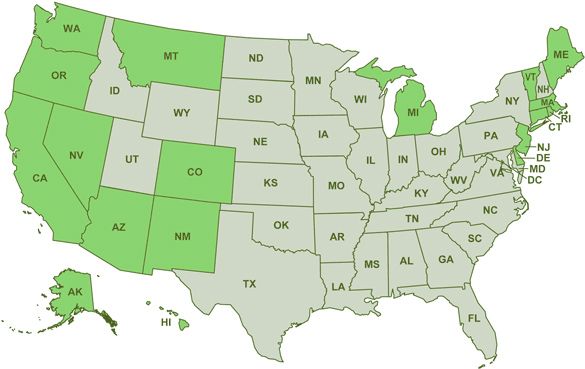Animal Behavior
Marijuana for Dogs?
Easy access to medical marijuana by people means dogs have greater access too!
Posted February 12, 2015

"Can you tell me about how marijuana affects dogs?" was the question. I admit that I was somewhat taken aback by this, mainly because I knew that the late middle-aged woman asking it was quite conservative in her attitudes and I doubted that she had ever been involved with the use of recreational drugs at any point in her life. However she continued, "I know that you're a psychologist and not a veterinarian, but psychologists were among the first people to study the effects of marijuana in people, so perhaps you might know how it affects dogs."
She paused for a moment and then continued to provide some information as to where this question was coming from. "The reason that I'm asking is that I just returned from Los Angeles. My sister lives there, and she has rather severe pain from arthritis in her hips and knees. Her doctor gave her a certificate which allows her to purchase medical marijuana for the pain. You might remember that it was around 1996 when California voters approved a referendum allowing patients to receive a doctor's recommendation to grow or buy marijuana for personal use if it was for medical purposes. The process seems quite casual and everybody seems to know somebody who can legally buy cannabis, and who is willing to supply it to friends and family who want it. It's kind of like when we were teens and we would get an adult to buy us a case of beer from the liquor store since we were under the legal age. Anyway, I went with my sister to a licensed medical marijuana dispensary when she needed to replenish her supply. The place offered a surprising array of products. One of those products was a glycerin tincture of marijuana that is being sold as a pet medicine in many of these dispensaries. I asked the person in charge what it was used for, and he told me that marijuana can be used in dogs the same way that it is used in people—namely to relieve pain, nausea, and anxiety. He even went on to tell me that marijuana can be used for some behavioral problems in dogs, like separation anxiety, fear of loud noises, and that sort of thing. Do you know anything about this?"
I explained to her that to the best of my knowledge the American Holistic Veterinary Medical Association was the first, and so far as I know the only, veterinary organization that officially encourages doing research on the safety and use of marijuana in animals.
In July 2014 this group adopted a position that says in part: "There is a growing body of veterinary evidence that cannabis can reduce pain and nausea in chronically ill or suffering animals, often without the dulling effects of narcotics. This herb may be able to improve the quality of life for many patients, even in the face of life-threatening illnesses." I also pointed out to her that when I searched the scientific literature I could not find that "growing body of veterinary evidence" that the veterinary association referred to. In fact I could find no controlled studies that actually tested the effects of the medical use of marijuana in dogs or other pets.
The world that we humans live in is changing in ways, and some of these may also affect the lives of our dogs. As of the time of this writing, 23 states in the US have legalized the use of medical marijuana with a doctor's recommendation, and in 2012, Colorado and Washington State legalized recreational marijuana use. Nonetheless such acts of legalization conflict with US federal law which currently prohibits all uses of marijuana, and anyone violating the law faces serious legal penalties. Even in those states where medical marijuana use has been approved, officers with the federal Drug Enforcement Administration periodically raid medical marijuana dispensaries, seizing their products and shutting them down—if only temporarily. Furthermore, at the federal level, marijuana has been classified as a Schedule I controlled substance since 1970. Schedule I is the most restrictive category of drugs according to the federal Controlled Substances Act and is reserved for substances with no currently accepted medical uses and which have a high potential for abuse. This is the same category where we find heroin, LSD and ecstasy. Compare that to the fact that cocaine, methamphetamine, and morphine are schedule II drugs which are considered to be more useful medically and have less harmful consequences. While physicians treating human beings can prescribe schedule I drugs, veterinarians cannot, and even recommending their use to their clients is an offense which can result in the loss of a veterinarian's license. This may account for the absence of formal research on the effect of cannabis on dogs.

US states where medical use of marijuana is legal in darker green
Of course this doesn't necessarily stop pet owners from giving such drugs to their animals. Many of those people who have access to medical marijuana give it to their own dogs, with the rationale that "If it works for me it will most likely work for my dog who has a similar problem." Unfortunately this practice can be dangerous. Most people feel that marijuana is safe, and never really all that toxic. The neurological literature shows that dogs have the same kind of endocannabinoid receptors that allow humans to benefit from the therapeutic effects of marijuana. The caution comes from the fact that this same research also says that dogs have a higher much concentration of these receptors in their hindbrains then humans do. Basically this means that dogs can develop severe neurologic effects if they receive an overdose of tetrahydrocannabinol (THC) the active chemical in marijuana.
Research has shown that when dogs (but not other laboratory animals that have been tested) get a high enough dosage of THC, they have a unique reaction known as marijuana toxicosis. One disturbing part of this is a condition called static ataxia. When it occurs the dog stands rigidly and rocks back and forth as if he is trying to move but cannot. The dog will drool, its eyes open very wide, pupils dilate, muscles get very tense, and the dog looks much as if he might be suffering from unpleasant, fear provoking drug induced hallucinations—the sort of situation that used to be called "a bad trip" back in the 1960s and 70s.
A team of researchers headed by Stacy Meola from the Emergency Department of Wheat Ridge Veterinary Hospital in Wheat Ridge, CO, published an article in the Journal of Veterinary Emergency and Critical Care* which looked at the effect that the increased availability of marijuana had on pet dogs. This study took advantage of the fact that since the year 2000, medical marijuana has been available in the state of Colorado. In the period from 2005 to 2010 the number of registered medical marijuana users in that state increased by nearly 150 percent, so that the total number of users was in excess of 106,000 by September 2010.
The marijuana is often taken in the form of baked goods such as chocolate brownies or cookies that have been laced with THC. Colloquially these are known as "medibles". This provides a convenient form for the human user to take marijuana as a medication. It also makes it easy for dog owners (who hope that marijuana might alleviate various medical or behavioral symptoms in their pets) to medicate their pets with THC. Even for people who are not deliberately giving their dogs marijuana it is also possible that dogs will now more easily be able to get doses of THC from these various edible products when they are inadvertently been left within the animal's reach. The result of an overdose of THC in dogs includes the severe symptoms of marijuana toxicosis that I mentioned before, and also may include tremors and loss of urinary control. This collection of problems is apt to prompt an owner to bring their animal to a veterinary clinic for emergency treatment.
The results of this study do not paint a pretty picture. Over the period of time measured, when the availability of marijuana increased, the number of dogs being brought into hospitals for marijuana toxicosis quadrupled. The number of dogs reported with symptoms increased in lock step with the number of individuals registering as medical marijuana users. Furthermore, not all of the dogs suffering from these toxic symptoms from consuming cannabis survived. Obviously this suggests that the increased sensitivity of dogs to THC could have lethal consequences.
Since I doubt that people are administering marijuana to their dogs for recreational purposes, but rather to treat medical and behavioral problems, I suggest a good deal of caution. While future research may show benefits of giving marijuana to dogs, we must know more about safe dosages and the overall effects of THC on our pets. Even if I lived in a place where marijuana was readily available, I would still wait for the scientific data to tell me in which situations cannabis was useful and the specific dosages to use, rather than simply offering my old dog a marijuana laced brownie to ease his arthritic pains simply because I knew that it would likely work for me.
Stanley Coren is the author of many books including: The Wisdom of Dogs; Do Dogs Dream? Born to Bark; The Modern Dog; Why Do Dogs Have Wet Noses? The Pawprints of History; How Dogs Think; How To Speak Dog; Why We Love the Dogs We Do; What Do Dogs Know? The Intelligence of Dogs; Why Does My Dog Act That Way? Understanding Dogs for Dummies; Sleep Thieves; The Left-hander Syndrome
Copyright SC Psychological Enterprises Ltd. May not be reprinted or reposted without permission
* Data From: Stacy D. Meola, Caitlin C. Tearney, Sharlee A. Haas, Timothy B. Hackett, and Elisa M. Mazzaferro (2012).Evaluation of trends in marijuana toxicosis in dogs living in a state with legalized medical marijuana: 125 dogs (2005–2010), Journal of Veterinary Emergency and Critical Care 22(6), pp 690–696, doi: 10.1111/j.1476-4431.2012.00818.x




